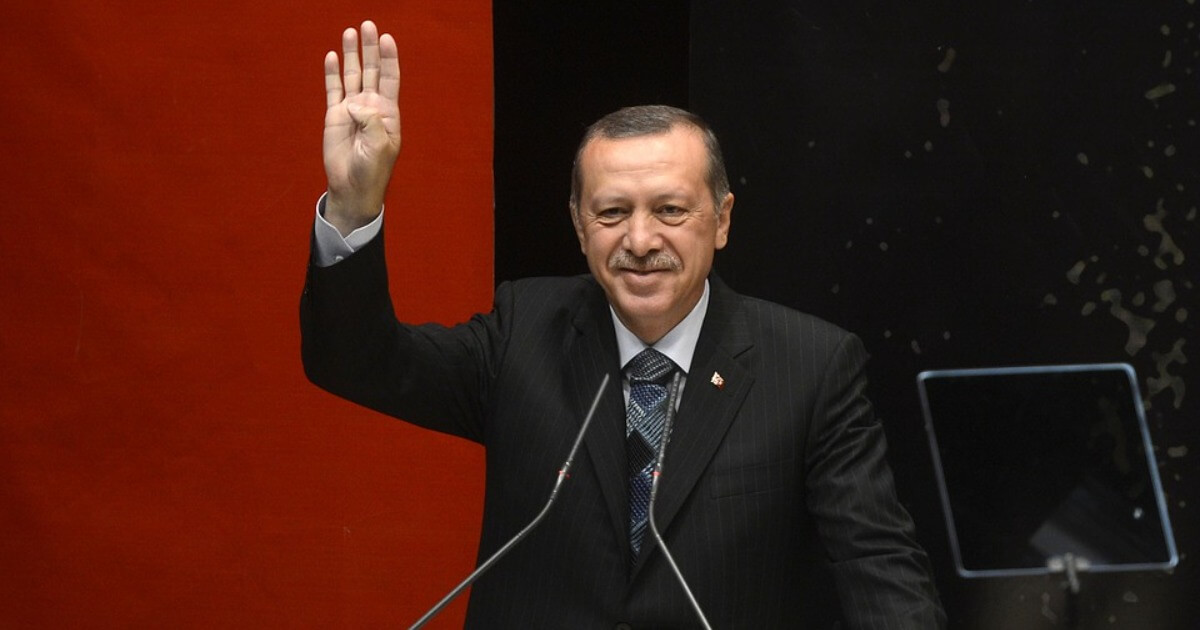Erdogan and ISIS
Trump should not fall for the Turkish president’s public relations stunts.
November 11, 2019

Turkish President Recep Tayyip Erdogan announced Thursday that the number of people Turkey has caught with family ties to slain Islamic State leader Abu Bakr al-Baghdadi is “close to reaching double digits.”
This is the latest in a series of statements by Turkish officials designed to showcase Ankara’s vigilance amid growing criticism of its negligence and complicity with the Islamic State.
Baghdadi’s death on October 26, less than three miles from the Turkish border in northwest Syria, triggered allegations that the terrorist leader “enjoyed some tacit Turkish protection.”
A senior U.S. official stated, “Turkey did not provide any assistance in this operation and [Baghdadi] was located right next to their border. That shows you how little they do on countering ISIS.”
Brett McGurk, former U.S. envoy for the anti-ISIS Coalition, pointed out that the United States had chosen to “launch this operation [against Baghdadi] from hundreds of miles away in Iraq, as opposed to facilities in Turkey, a NATO ally, just across the border.”
It gets more complicated
Complicating matters further for Erdogan, a November 6 exposé in The National newspaper cited discussions with Iraqi intelligence officials to claim that one of Baghdadi’s brothers traveled to Istanbul several times since the end of 2018.
As the U.S. Treasury Department’s April and September designations of Turkey-based Islamic State financiers also show, the country has become an increasingly permissive jurisdiction for jihadists.
Erdogan is fully aware that allegations of negligence and complicity are putting not only him but also Donald Trump – his host at the White House this week – in a difficult situation.
Media campaign
The Turkish presidency’s director of communications tweeted Monday that “Much dark propaganda against Turkey has been circulating to raise doubts about our resolve against [the Islamic State].” To remedy Erdogan’s tarnished image, the Turkish government has since launched an effort to “publicize Turkey’s push to catch IS members who were close to al-Baghdadi.”
Turkish officials announced on November 4 that they captured Rasmiya Awad, Baghdadi’s 65-year-old sister, alongside her husband, daughter-in-law, and five children in a trailer near the northwestern Syrian town of Azaz, which has been under Turkish control since September 2016.
The next day, Turkish security forces reported the arrest of five Islamic State militants, including the group’s intelligence chief, through multiple operations in both Turkish-administered towns in Syria and within Turkish borders.
On November 6, Erdogan revealed that Turkey also has been detaining Asma Fawzi Muhammad Al-Qubaysi, the first of Baghdadi’s four wives, along with Baghdadi’s daughter Leila Jabeer, since their arrest on June 2, 2018, in the Turkish province of Hatay on the Syrian border.
While drip-feeding stories of his success against the Islamic State for three days in a row, Erdogan criticized the United States for leading a “communications campaign” about Baghdadi’s slaying. “We caught his wife, but we didn’t make a fuss about it,” Erdogan said.
Trump appeared impressed by the Turkish president’s self-promotion campaign and tweeted about “a very good call” with Erdogan, adding that the Turks “have captured numerous ISIS fighters that were reported to have escaped during the conflict – including a wife and sister of terrorist killer al Baghdadi.”
Conclusions
Trump should not fall for the Turkish president’s public relations stunts. Instead, Trump should demand tougher action against the full range of jihadist networks active within and around Turkish borders, beyond just the Islamic State.
Trump should also hold the Turkish government accountable for the war crimes committed by Turkey’s Islamist proxies in northeast Syria.
By adding to the instability in Syria, Erdogan threatens to reverse the gains that the United States and its allies have made against the Islamic State.
Takeaways
Baghdadi’s death less than three miles from the Turkish border in Syria triggered allegations that he enjoyed some tacit Turkish protection.
Erdogan is fully aware that allegations of negligence and complicity with IS are putting not only him but also Trump in a difficult situation.
Trump should hold the Turkish government accountable for the war crimes committed by Turkey’s Islamist proxies in northeast Syria.
By adding to the instability in Syria, Erdogan threatens to reverse the gains that the US and its allies have made against the Islamic State.

